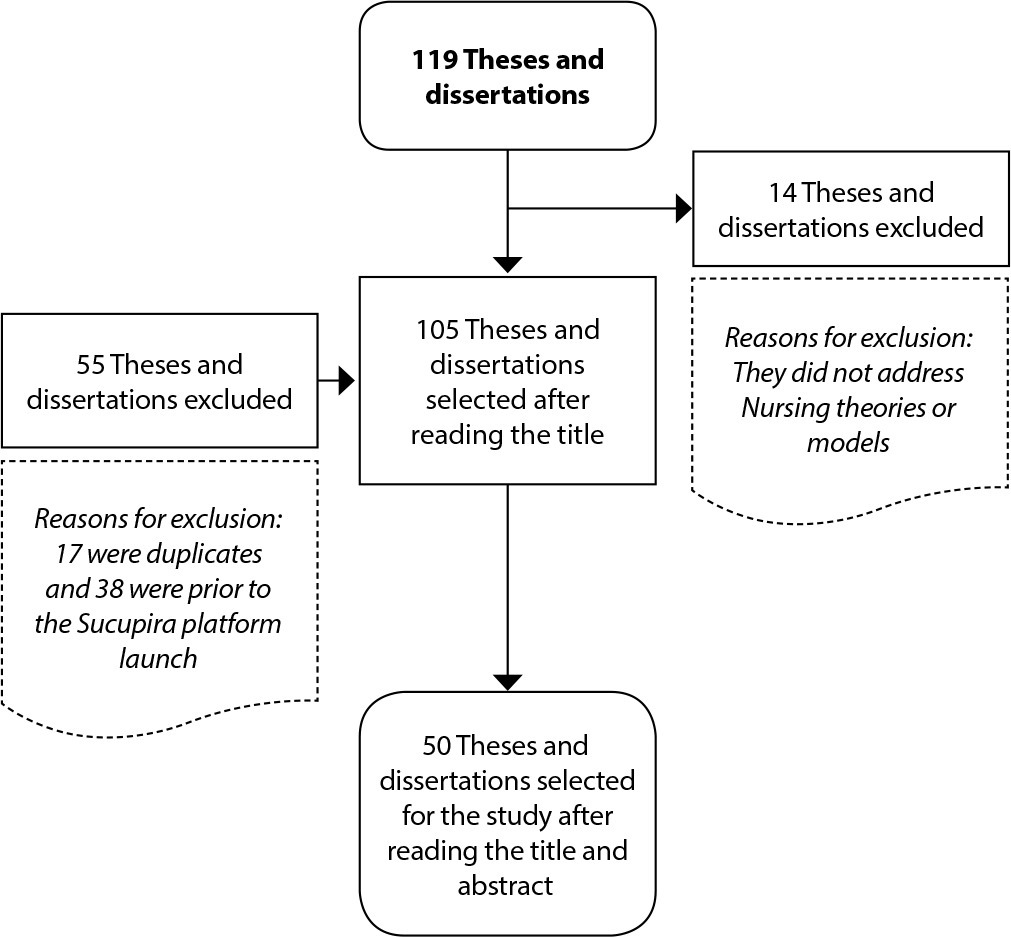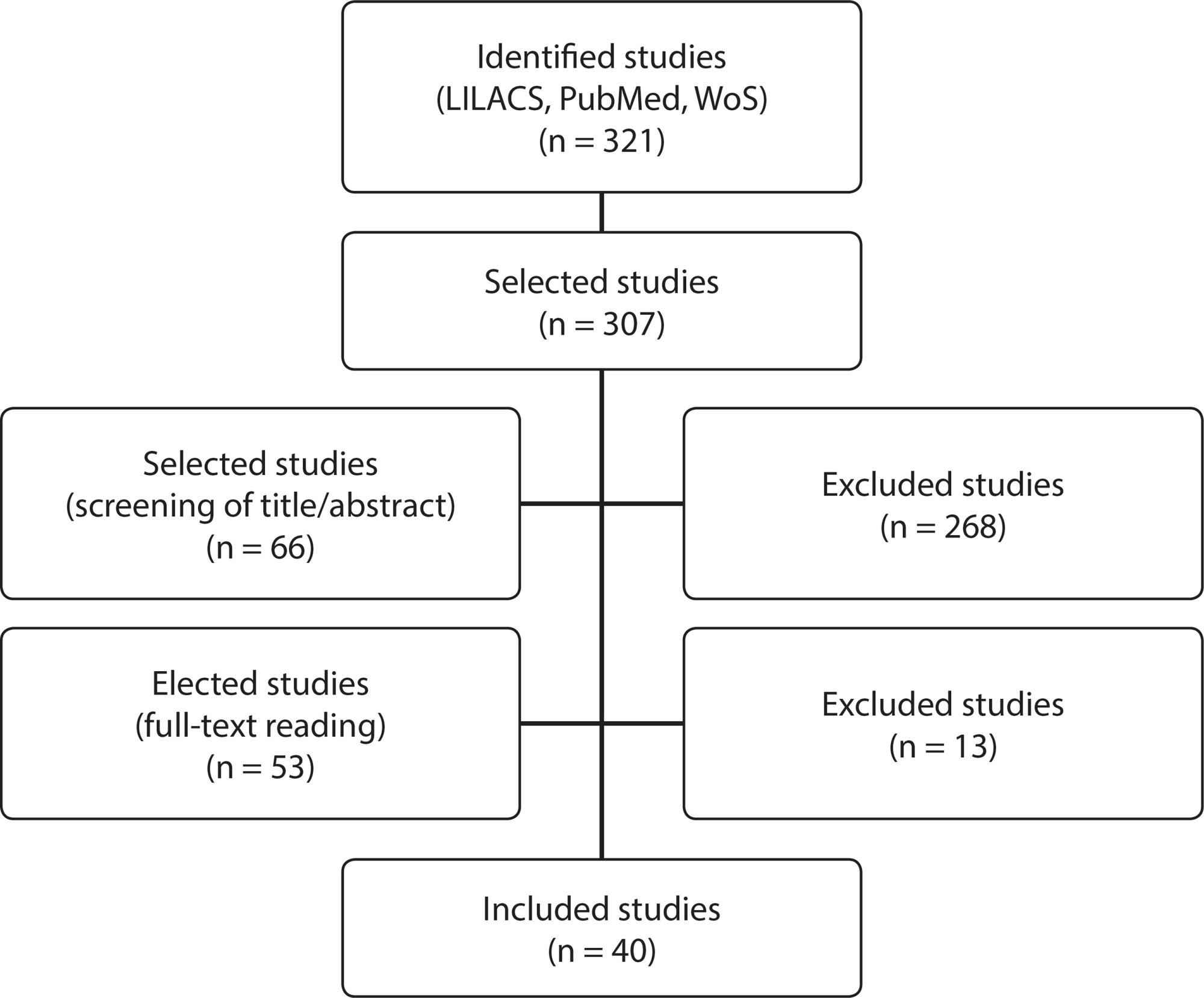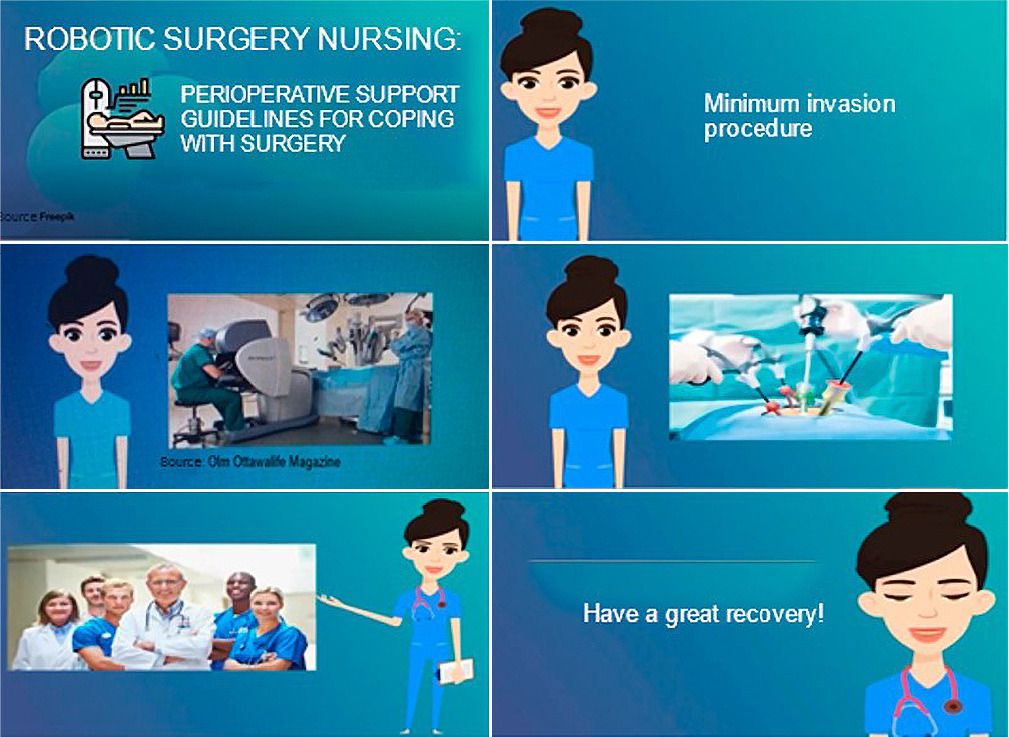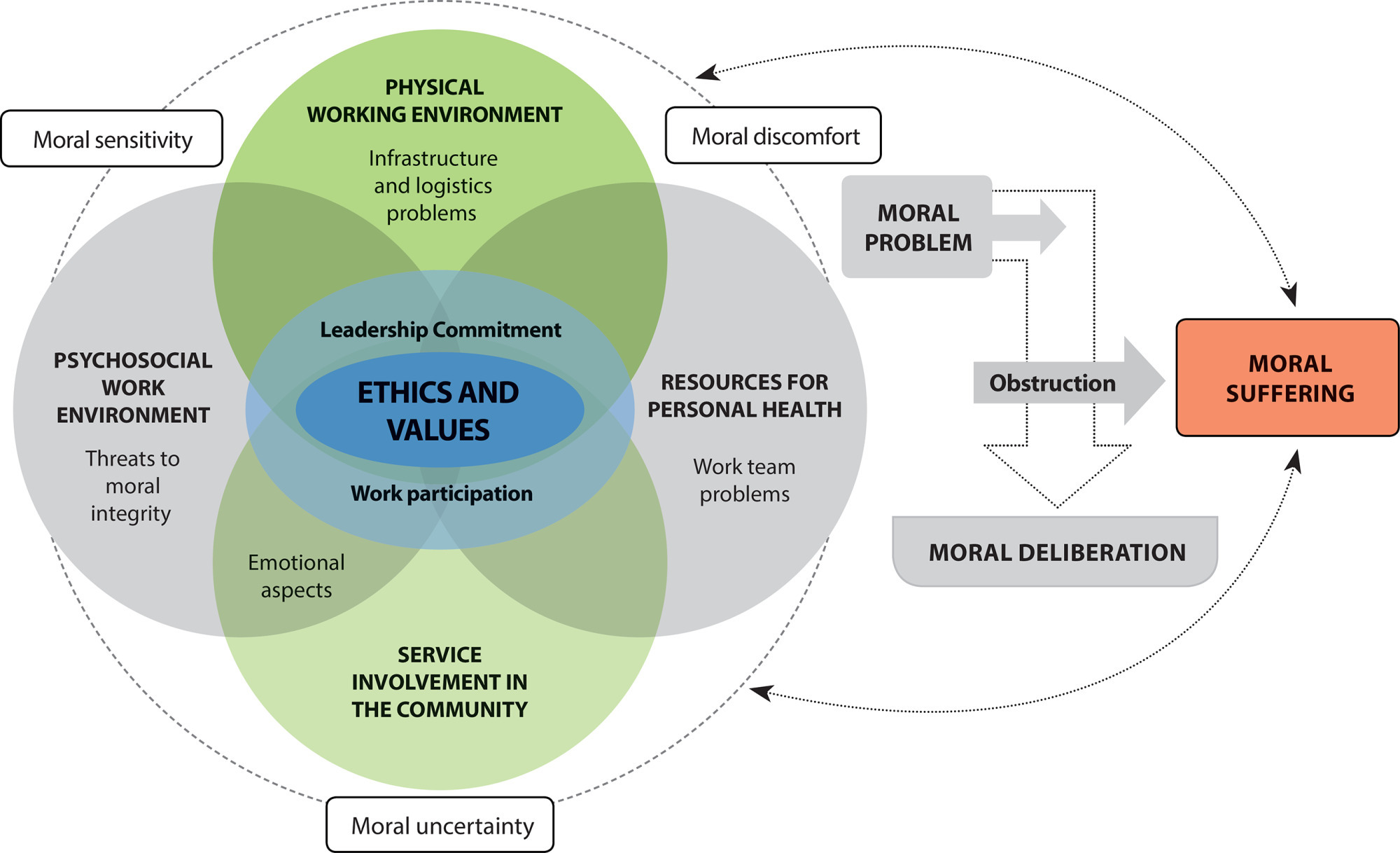-
01-01-2018
Needs in Mental Health and Research
Revista Brasileira de Enfermagem. 2018;71:2077-2078
Abstract
Needs in Mental Health and Research
Revista Brasileira de Enfermagem. 2018;71:2077-2078
DOI 10.1590/0034-7167-2018-0363
Views0Psychic suffering is a public health problem in the world because it is strongly related to the loss of functionality, and to the presence of drastic reflexes in personal life and in the social context. Psychic suffering presents as determinants not only the abilities of individuals to deal with thoughts, emotions, behaviors, interactions, but also […]See more -
01-01-2018
Necessidades em saúde mental e pesquisa
Revista Brasileira de Enfermagem. 2018;71:2077-2078
Abstract
Necessidades em saúde mental e pesquisa
Revista Brasileira de Enfermagem. 2018;71:2077-2078
DOI 10.1590/0034-7167-2018-0363
Views0O sofrimento psíquico é um problema de saúde pública no mundo pois está fortemente relacionado à perda de funcionalidade, à apresentação de reflexos drásticos na vida pessoal e no contexto social. Dessa forma, apresenta como determinantes não somente as habilidades dos indivíduos para lidar com pensamentos, emoções, comportamentos, interações, mas também aspectos relacionados à vida […]See more -
REFLECTION01-01-2018
Ethical competences for the development of nursing care
Revista Brasileira de Enfermagem. 2018;71:1810-1814
Abstract
REFLECTIONEthical competences for the development of nursing care
Revista Brasileira de Enfermagem. 2018;71:1810-1814
DOI 10.1590/0034-7167-2017-0539
Views0See moreABSTRACT
Objective:
To present an analysis of the nursing ethos based on the disciplinary foundations of nursing to propose a definition of ethical competences for nursing training.
Method:
The present proposal is a theoretical reflection, based on a literature review of the specialty, both nursing and ethics.
Results:
we suggest basing the ethical education of nursing students integrating transversally disciplinary, bioethical and civic ethical competences, considering certain educational dimensions that favor their development.
Final considerations:
We expect that the definitions of three competences of the moral scope of nursing, contribute to cross-cutting proposals that promote the values and principles of the profession.
-
01-01-2018
Competencias éticas para el desarrollo del cuidado en enfermería
Revista Brasileira de Enfermagem. 2018;71:1810-1814
Abstract
Competencias éticas para el desarrollo del cuidado en enfermería
Revista Brasileira de Enfermagem. 2018;71:1810-1814
DOI 10.1590/0034-7167-2017-0539
Views0See moreRESUMEN
Objetivo:
Presentar un análisis del êthos de enfermería en base a los fundamentos disciplinares de ésta, a fin de proponer una definición de competencias éticas para la formación en enfermería
Método:
La presente propuesta es una reflexión teórica, fundamentada en una revisión de literatura de la especialidad, tanto de enfermería como de la ética.
Resultados:
se sugiere basar la formación ética de estudiantes de enfermería integrando transversalmente competencias éticas disciplinares, bioéticas y cívicas, considerando determinadas dimensiones educativas que favorecen su desarrollo.
Consideraciones finales:
Se espera que las definiciones de tres competencias del ámbito moral de la enfermería, contribuyan a propuestas transversales que logren fomentar los valores y principios de la profesión.
-
REFLECTION01-01-2018
The professor’s body: discourses on subjectivity to reflect on nurses’ education
Revista Brasileira de Enfermagem. 2018;71:1805-1809
Abstract
REFLECTIONThe professor’s body: discourses on subjectivity to reflect on nurses’ education
Revista Brasileira de Enfermagem. 2018;71:1805-1809
DOI 10.1590/0034-7167-2017-0456
Views0See moreABSTRACT
Objective:
to reflect on the body of the nursing professor in the subjectivity discourse.
Method:
this is a reflective essay on the theoretical and practical reverberations of the nursing professor’s body based on the Deleuzoguattarian discourse.
Results:
in the theoretical framework, the body of the nursing professor was considered as a producer of subjectivities and understood without organs, surrounded by strengths, desires, and affections. In the practical framework, we discussed pedagogical strategies developed by professors, such as dramatic games, simulated scenes, presentation of the line of care and living portfolio, characterized by stimulating nursing students to value political, civic, creative, and supportive dimensions.
Conclusion:
based on the subjectivity discourses, the professor’s body was demystified as uniquely holder of knowledge, and all participants in the educational scenario were considered active protagonists of collective knowledge.
-
EXPERIENCE REPORT01-01-2018
Nursing students in the community: entrepreneurial strategy and proponent of changes
Revista Brasileira de Enfermagem. 2018;71:1799-1804
Abstract
EXPERIENCE REPORTNursing students in the community: entrepreneurial strategy and proponent of changes
Revista Brasileira de Enfermagem. 2018;71:1799-1804
DOI 10.1590/0034-7167-2017-0382
Views1See moreABSTRACT
Objective:
To report the insertion of the nursing students of the Franciscan University Center in the community through the project Adopting a Family, contributing to critical thinking within the Nursing academic production and its articulation to collective health.
Results:
In the professors’ evaluation, the activity represented an effective articulation and insertion of the university in the community; for the students, it allowed for spaces of construction, deconstruction and negotiation with the unknown and the uncertain; for the families, it enabled the feeling of being remembered and valued as human beings and citizens. Through the experiences had, the transformation of health practices goes through the emergence and valuation of new knowledge.
Final considerations:
The insertion of the university in the community is constituted by an entrepreneurial strategy that is proponent of changes, due to its more effective and resolute outreach of health issues proposed by the national health system.

-
EXPERIENCE REPORT01-01-2018
From theory to practice, operating the clinical simulation in Nursing teaching
Revista Brasileira de Enfermagem. 2018;71:1791-1798
Abstract
EXPERIENCE REPORTFrom theory to practice, operating the clinical simulation in Nursing teaching
Revista Brasileira de Enfermagem. 2018;71:1791-1798
DOI 10.1590/0034-7167-2017-0180
Views0See moreABSTRACT
Objective:
To report the experience of the operationalization of clinical simulation as a pedagogical strategy in a subject of an undergraduate course in Nursing.
Method:
Clinical simulation cycles were carried out following the steps of action research, such as: planning, action, observation and reflection, from March 2014 to July 2015 with 10 professors and 44 students from a Primary Care and Mental Health subject of an undergraduate course in Nursing.
Results:
Five cycles of clinical simulation were performed, at the end of each cycle modifications were suggested by students and professors and the operation was adjusted to meet the needs of the subject. The main points of change were: professor role, logistics, equipment, debriefing model and preparation of “simulated patients”.
Final considerations:
The clinical simulation is a possible method to be operationalized in undergraduate course in Nursing, needs pedagogical and logistic planning as well as, sensitization of professors and students.

-
EXPERIENCE REPORT01-01-2018
Clinical simulation to teach nursing care for wounded patients
Revista Brasileira de Enfermagem. 2018;71:1785-1790
Abstract
EXPERIENCE REPORTClinical simulation to teach nursing care for wounded patients
Revista Brasileira de Enfermagem. 2018;71:1785-1790
DOI 10.1590/0034-7167-2017-0170
Views0See moreABSTRACT
Objective:
to report the experience of constructing and applicating clinical simulation scenarios for the evaluation and treatment of wounds.
Method:
experience report on two simulation scenarios for nursing care of wounded patients applied to nursing undergraduates. We structured simulations based on the model from the National League for Nursing/Jeffries Simulation Framework. The scenarios were evaluated by the instrument Simulation Design Scale and the students by the experience with the simulation.
Results:
the scenarios reproduced nursing care situations with the application of role play and moulage, which allowed us to evaluate and discuss the wound treatment. Reflections on the debriefing were important for the teaching-learning process and association between theory and practice, these factors determined the satisfaction of students with the activity.
Conclusion:
using clinical simulation scenarios to teach students favored the clinical reasoning and decision-making in the evaluation and treatment of wounds.
-
ORIGINAL ARTICLE03-30-2022
Nursing Theories and Models as theoretical references for Brazilian theses and dissertations: a bibliometric study
Revista Brasileira de Enfermagem. 2022;75(4):e20210201
Abstract
ORIGINAL ARTICLENursing Theories and Models as theoretical references for Brazilian theses and dissertations: a bibliometric study
Revista Brasileira de Enfermagem. 2022;75(4):e20210201
DOI 10.1590/0034-7167-2021-0201
Views0See moreABSTRACT
Objectives:
to map the use of Nursing models and theories utilized as theoretical references in graduate academic Nursing research in Brazil.
Methods:
bibliometrics, performed in the Theses and Dissertations database of the Coordination for the Improvement of Higher Education Personnel, in November, 2020. Data analysis was performed using simple descriptive statistics and lexical analysis, performed using the software: IRAMUTEQ.
Results:
the 50 selected studies were from the field of Nursing, 15 (30%) of which were theses and 35 (70%) were dissertations. 13 Nursing theories and models were identified, used as theoretical references, highlighting Roy’s Adaptation Model in 10 (20%) of the researches. Final Considerations: the study found a great diversity in the use of nursing theories and models as a theoretical framework, which allowed us to identify the areas most researched by nurses and confirmed their application in different specialties and health contexts.

-
REVIEW08-05-2020
Communication of bad news in pediatrics: integrative review
Revista Brasileira de Enfermagem. 2020;73:e20190059
Abstract
REVIEWCommunication of bad news in pediatrics: integrative review
Revista Brasileira de Enfermagem. 2020;73:e20190059
DOI 10.1590/0034-7167-2019-0059
Views1See moreABSTRACT
Objectives:
to identify the scientific evidence of the elements of communication in the process of communicating bad news in pediatrics.
Methods:
integrative review searched in the LILACS, PubMed and WoS databases. Primary studies in Portuguese, Spanish or English were included.
Results:
the evidence from the 40 studies were organized according to the elements of communication: sender (family and/or professional), receiver (family and/or child), message (bad or difficult news about diagnosis/prognosis; empathetically, honestly, objective, hopeful and available), channel (materials, quality, quantity and pace), context and effects (social and emotional changes), noise (feelings and language) and failures (silencing and misleading information).
Conclusions:
there is a need to prepare the institution and team, as well as the family and the child, in order to promote co-responsibility in this process, to minimize suffering and communication noise and to avoid failures, recognizing the child’s right to know their condition.

-
ORIGINAL ARTICLE10-28-2020
Conflict management strategies used by Portuguese nurse managers
Revista Brasileira de Enfermagem. 2020;73:e20190336
Abstract
ORIGINAL ARTICLEConflict management strategies used by Portuguese nurse managers
Revista Brasileira de Enfermagem. 2020;73:e20190336
DOI 10.1590/0034-7167-2019-0336
Views0See moreABSTRACT
Objectives:
to analyze the perception and conflict management strategies used by nurses in the management of people in Portuguese health services.
Methods:
descriptive, correlational study, carried out in Portuguese health services, with an intentional non-probabilistic sample, totaling 95 nurse managers. A questionnaire and Conflict Management Scale were used, analyzing the variables of managerial activities and conflict management, with the aid of software.
Results:
it was identified that 60% of the managers, report having to mediate conflicts daily, and the majority report adopting dialogue in conduct. However, through the Kruskal-Wallis test, it was shown that enforcement strategies in conflict management prevail (p = 0.008), with collaborative ones being more restricted to monthly intervals (p = 0.049).
Conclusions:
managers perceive the importance of collaboration in the mediation of conflicts, however, in their daily lives; they tend to maintain imposing behaviors, signaling for a little transformational leadership style.

-
ORIGINAL ARTICLE05-09-2022
Factors associated with the skills of informal caregivers in home care
Revista Brasileira de Enfermagem. 2022;75(4):e20210744
Abstract
ORIGINAL ARTICLEFactors associated with the skills of informal caregivers in home care
Revista Brasileira de Enfermagem. 2022;75(4):e20210744
DOI 10.1590/0034-7167-2021-0744
Views0See moreABSTRACT
Objective:
To identify factors associated with cognitive, emotional, psychomotor, and relational skills of informal caregivers in home care.
Methods:
A cross-sectional study carried out with a sample of 216 informal caregivers residing in a municipality in the state of Paraná. Data collection took place between February and July 2019, with an instrument developed and validated to assess the skills of informal caregivers. Descriptive and inferential analyses were used.
Results:
The factors associated with a greater competence of informal caregivers were being female, having training in the field, and having more than five years home care experience. The lowest competence was observed in caregivers who had health problems and belonged to the lowest strata of family purchasing power. Participants had lower scores in psychomotor competence and had better results in cognitive competence.
Conclusion:
It was found that women with experience in care had higher levels of competence to provide quality care at home assistance services.
-
ORIGINAL ARTICLE08-15-2022
Construction and validation of an educational video for patients in the perioperative period of robotic surgery
Revista Brasileira de Enfermagem. 2022;75(5):e20210952
Abstract
ORIGINAL ARTICLEConstruction and validation of an educational video for patients in the perioperative period of robotic surgery
Revista Brasileira de Enfermagem. 2022;75(5):e20210952
DOI 10.1590/0034-7167-2021-0952
Views1See moreABSTRACT
Objectives:
to build and validate educational technology, of the video type, aimed at teaching about the perioperative period of robotic surgery.
Methods:
methodological development study, following the integrative review phases: pre-production, production, post-production, and validation. The video was evaluated for content and appearance by 14 judges. Content validity (CVI) and appearance (AVI) and agreement (CI) indices were calculated, and the exact binomial test was applied, considering p>0.05 and a proportion of 0.80 of agreement.
Results:
the video included 13 themes, with a duration of seven minutes and 33 seconds. The items of the three dimensions evaluated presented excellent CVI, ranging between 0.86 and 1.00 (p>0.05), with a total CVI of 0.95, VAT of 0.94 and CI equal to 61.5%.
Conclusions:
the video included 13 themes, with a duration of seven minutes and 33 seconds. The items of the three dimensions evaluated presented excellent CVI, ranging between 0.86 and 1.00 (p>0.05), with a total CVI of 0.95, VAT of 0.94 and CI equal to 61.5%.

-
03-05-2021
Moral suffering in health professionals: portrait of the work environment in times of COVID-19
Revista Brasileira de Enfermagem. 2021;74:e20200653
Abstract
Moral suffering in health professionals: portrait of the work environment in times of COVID-19
Revista Brasileira de Enfermagem. 2021;74:e20200653
DOI 10.1590/0034-7167-2020-0653
Views0See moreABSTRACT
Objective:
To analyze potential triggers of moral suffering experiences of health professionals, reported in the media, during the COVID-19 pandemic and to propose a theoretical construct of analysis.
Methods:
Study with qualitative approach whose data source were 50 reports published online, collected passively and actively, submitted to Content Analysis with the help of ATLAS.ti software.
Results:
The potential moral problems that trigger moral suffering are related to the threat to moral integrity, infrastructure/logistics and teamwork problems, and emotional aspects, revealing their articulation with damage to the foundations of a healthy work environment, which generated the proposal of a construct.
Final considerations:
The articulation between the experiences of moral suffering and the commitment of the fundamentals of a healthy work environment has brought important contributions to the adoption of strategies to protect and stimulate moral deliberation by professionals in favor of practice and society.

-
05-28-2021
Are symptoms of depression and anxiety in nursing students associated with their sociodemographic characteristics?
Revista Brasileira de Enfermagem. 2021;74:e20200503
Abstract
Are symptoms of depression and anxiety in nursing students associated with their sociodemographic characteristics?
Revista Brasileira de Enfermagem. 2021;74:e20200503
DOI 10.1590/0034-7167-2020-0503
Views0See moreABSTRACT
Objective:
to investigate symptoms of depression and anxiety and their association with the sociodemographic characteristics of undergraduate nursing students.
Methods:
a cross-sectional analytical study carried out with students from the Faculty of Nursing at Universidade Federal de Juiz de Fora from June to July 019. Data were collected through a sociodemographic questionnaire and the Beck Depression and Anxiety Inventories.
Results:
192 students participated, with a mean age of 21.44 (±3.56) years. 85.93% of participants were female. The mean depression score was 22.40 (±12.35), and anxiety was 17.56 (±11.98). There was a difference in the mean of the scales for sex and psychotropic drugs (p<0.05). Women presented moderate and severe classification for both scales. Severe symptoms prevailed among students from the 6th to the 10th semester (18.22%).
Conclusion:
there was an association between depression and anxiety symptoms related to gender and psychotropic drugs.
-
ORIGINAL ARTICLE03-30-2020
Stomized children care practices: narratives of relatives
Revista Brasileira de Enfermagem. 2020;73(2):e20180370
Abstract
ORIGINAL ARTICLEStomized children care practices: narratives of relatives
Revista Brasileira de Enfermagem. 2020;73(2):e20180370
DOI 10.1590/0034-7167-2018-0370
Views0See moreABSTRACT
Objectives:
to understand the practices adopted by relatives regarding ostomized children care.
Methods:
qualitative approach, conducted with 11 relatives of ostomized children. Methodological framework was used as narrative technique; NVivo® software for data categorization and information analysis; content analysis technique.
Results:
participants revealed unpreparedness in dealing with children, lack of knowledge about handling materials and equipment inherent to ostomy and challenges faced in the daily life of children in school. They are unanimous in telling they feel encouraged and strengthened by receiving support from nurses in child care. They suggested the development of strategies to guide ostomized children care, such as educational material use.
Conclusions:
to understand family members’ experience made it possible to support training and qualification of nursing professionals, and to establish priorities in care. Evidence found may contribute to reflections that aid health promotion and prevention of complications in ostomized children care.
Search
Search in:
Nuvem de Tags
Adolescente (85) Atenção Primária à Saúde (239) COVID-19 (91) Criança (91) Cuidados de Enfermagem (269) Educação em Enfermagem (151) Educação em Saúde (139) Enfermagem (930) Enfermagem Pediátrica (86) Estudantes de Enfermagem (77) Estudos de Validação (131) Família (87) Idoso (208) Promoção da Saúde (99) Qualidade de Vida (104) Saúde do Trabalhador (86) Saúde Mental (145) Saúde Pública (82) Segurança do Paciente (150) Tecnologia Educacional (100)



